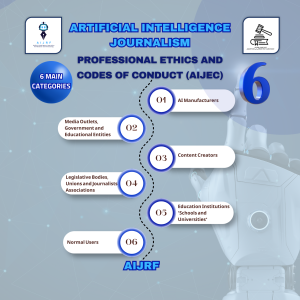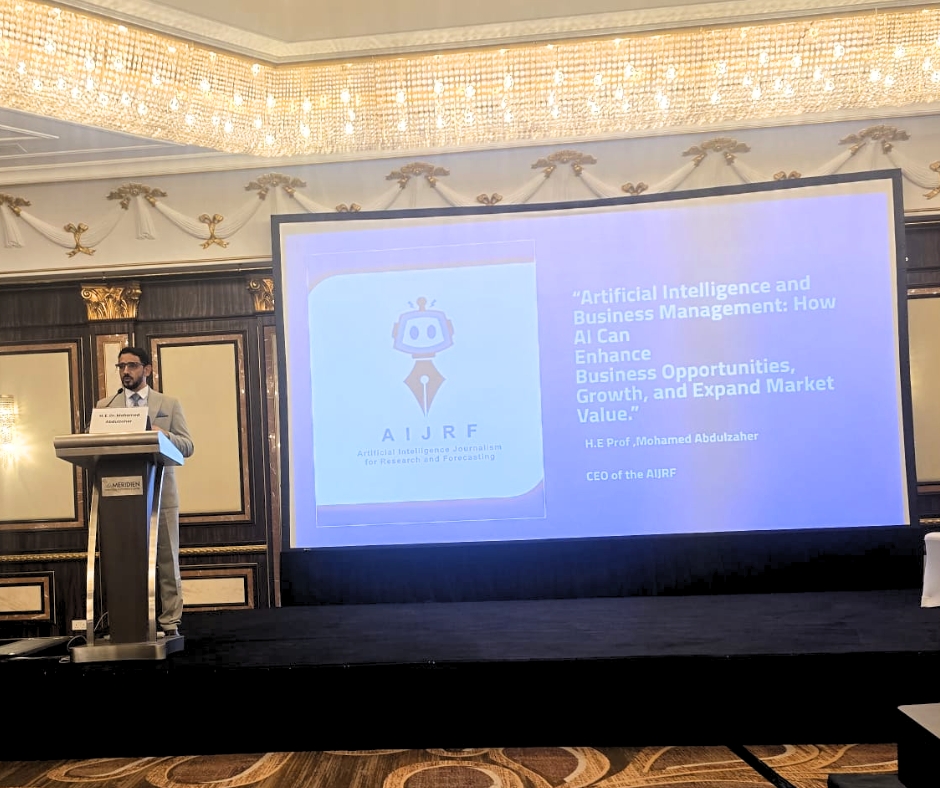Dr. Mohamed Abdulzaher: AIJEC Focuses on 6 Main Pillars
Dubai Masaader News
The Artificial Intelligence Journalism for Research and Forecasting (AIJRF), a leading global applied and academic organization in AI, media, content creation, and media of the Metaverse, has announced the release of the second edition of the Artificial Intelligence Journalism Professional Ethics and Codes of Conduct (AIJEC) 2024. This follows the success of the first edition published in 2021, which was initially presented during the Artificial Intelligence Journalism World Forum AIJWF in March 2021.
Dr. Mohammed Abdulzaher, CEO of AIJRF, the Editor in Chief and the General Supervisor of the AIJEC guide, stated: “Three years after the release of the first edition, we are launching this updated and more comprehensive guide amidst rapid advancements in AI technologies and tools and the media of the Metaverse for content creation.”

He added, “When we introduced the first edition as a working paper during the Artificial Intelligence Journalism World Forum AIJWF in early 2021, the number of AI applications and tools did not exceed 150,000. According to the Global Artificial Intelligence Journalism Index (GAIJI), this number has surged to nearly 650,000 applications by the end of 2024.”

Dr. Abdulzaher highlighted that the primary objective of the guide is to promote a Culture of AI Ethics (Ethical Governance of AI) among media outlets, content creators, AI manufacturers, and even ordinary users.
Guide Objectives:
The guide, consisting of over 50 pages and addresses 6 main pillars, aims to:
- Establish and promote the culture of AI Ethics in content creation on both regional and global levels.
- Encourage positive practices in adopting and integrating AI tools and technologies in content creation and government services.
- Strengthen the role of media and governmental institutions in setting mandatory ethical and professional guidelines for their personnel to ensure adherence to AI ethics.
- Raise awareness among content creators about the importance of abiding by ethical and professional standards when using AI tools, even at an individual level.
- Raise public awareness about the risks of neglecting ethical and professional standards by media or governmental entities when employing AI applications and tools.
- Urge global institutions and AI technology developers to establish ethical and professional principles aligned with the values of the societies and markets where they operate.
- Advocate Arab legislative and regulatory bodies to adopt strict ethical and professional guidelines for the use of AI applications and tools by content creators, media organizations, and government entities.
- Call on labor unions, journalism associations, and professional bodies to monitor media organizations and content creators, ensuring their compliance with ethical and professional codes when utilizing AI in content creation.











